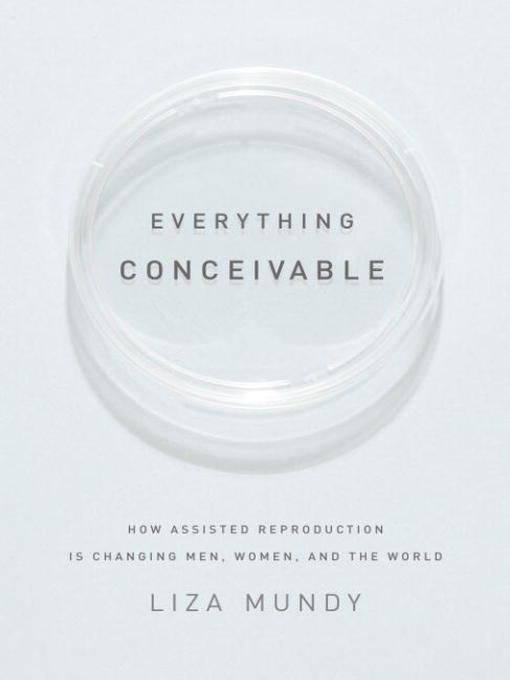
Everything Conceivable
How the Science of Assisted Reproduction Is Changing Our World
کتاب های مرتبط
- اطلاعات
- نقد و بررسی
- دیدگاه کاربران
نقد و بررسی

Starred review from February 19, 2007
A revolution is taking place and it's being driven by the most fundamental of all human urges—the desire to reproduce. This revolution is the subject of Mundy's utterly fascinating book on assisted reproduction. The breadth and thoroughness of Mundy's investigation makes it nearly impossible to come away without having your opinions challenged if not changed altogether. Mundy, a feature writer for the Washington Post
, combines a science reporter's objectivity with a mother's understanding, and she delivers her emotionally charged and often scientifically complex material in clear, bright and eminently readable prose. Mundy's research starts with the facts: 80 million people worldwide suffer from infertility; 500,000 frozen embryos exist in America alone; and fertility drugs are a $3-billion a year business. From there she interviews mothers, fathers, infertility doctors, surrogate mothers, egg donors, sperm donors and adult children conceived through surrogacy and in vitro fertilization. The picture that emerges is one of a social experiment so new and untested—legally, medically, ethically and socially—that it behooves us all to be as informed as possible. There couldn't be a better starting point than this book. 75,000 first printing.

March 15, 2007
Is assisted reproduction a miracle for childless parents, or a morally distasteful industry that earns $3 billion a year for drug and medical device companies? It appears to be both inWashington Post Magazine feature writer Mundy's account of the technological innovations that have allowed us to "cure" infertility. She interviews heartbroken would-be parents and those who worry about the social ramifications of generations of children who don't know who their biological parents are. Moreover, she explores the far-reaching effects of such medical technologies as fertility drugs, in vitro fertilization, sperm and egg donation, surrogacy, and genetic testing. More and more children have older parents; multiples (twins, triplets) are being born with greater frequency. What should be done with "excess" frozen human embryos? Should the industry of birth be better regulated, or is that allowing the government into the bedroom? Fans of Jodi Picoult's fictional account of the hazards of designer reproduction, My Sister's Keeper, may be interested in these real-life moral dilemmas. Recommended for public and academic libraries. [See Prepub Alert, LJ 12/06.]Elizabeth Williams, Washoe Cty. Lib. Syst., Reno
Copyright 2007 Library Journal, LLC Used with permission.

Starred review from March 1, 2007
Mundy applies prodigious journalistic and research skills to a topic as compelling and timely as assisted reproduction, and the result is a one-night read. From its inception, the practice of assisted reproduction, initially limited to in vitro fertilization (IVF), has been a hot-button issue, with emotionally charged opinions weighing in on all sides. But since the comparatively halcyon days of what now seem relatively simple choices, relentless scientific advancement has continued to upgrade the pavement for anyone, female and male, who wishes to join the march toward motherhood. It may take a village to raise a child, but what are the cultural, social, and personal implications when a mixed-gender basketball team can create a child? What happens when it is not inconceivable (no pun intended) for a child to have five "parents"? A couple of any gender combination to have a child via an egg donor, a sperm donor, and a surrogate mother? What about regulating ethics in the reproductive resources industry involved in brokering eggs and sperm, recruiting a stable of gestational surrogates, and so forth, to anyone with the financial wherewithal and emotional vigor to go through the grueling assisted reproduction process? Mundy covers all bases, seamlessly merging scientific fact, real-life experiences, and philosophical implications.(Reprinted with permission of Booklist, copyright 2007, American Library Association.)

























دیدگاه کاربران